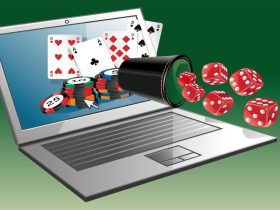Live dealer gaming employs multiple verification layers, ensuring transparent and fair gameplay through observable procedures and independent oversight mechanisms. These systems combine physical card handling with advanced monitoring technology, creating comprehensive fairness frameworks that protect player interests. Multiple camera systems provide complete visibility of all game actions, enabling players to observe every aspect of card handling and dealing procedures. The appeal of บาคาร่า in live dealer format stems partly from this transparency, where players witness actual card shuffling and distribution. These visual confirmations eliminate concerns about hidden manipulation while providing entertainment value through professional game presentation standards.
Independent monitoring systems
Third-party oversight organizations monitor live dealer operations continuously through dedicated observation systems that track every game action and outcome. These independent monitors verify proper procedures while identifying any irregularities that might indicate concerns about fairness. Monitoring systems record complete game sessions, enabling detailed review when questions arise about specific gameplay incidents or dealer procedures.
Automated tracking systems compare actual game outcomes with expected probability distributions, identifying unusual patterns that might suggest procedural problems. These systems operate independently from gaming operators, ensuring objective oversight free from commercial influence. Regular reports document game performance and dealer compliance, providing transparency for both players and regulatory authorities.
Card handling protocols
- Fresh deck procedures – New cards are introduced regularly, with visible packaging removal and initial shuffling performed before player observation
- Shuffling verification – Multiple shuffle techniques performed under camera supervision, ensuring random card distribution without manipulation possibilities
- Cut card placement – Player-designated cut positions prevent dealer control over card order while maintaining proper randomization procedures
- Discard protocols – Used cards are removed from play, preventing reintroduction while maintaining game integrity throughout extended sessions
Standardized card handling procedures eliminate human manipulation possibilities while maintaining natural randomness essential for fair gameplay. These protocols receive regular training reinforcement, ensuring all dealers follow identical procedures regardless of individual style preferences. Supervisory oversight monitors compliance with established procedures while providing corrective guidance when deviations occur.
Equipment verification standards
- Regular inspections – Gaming equipment undergoes scheduled examination, ensuring proper condition and continued compliance with fairness standards
- Calibration procedures – Shuffling machines and other equipment receive technical verification, ensuring random operation without bias toward specific outcomes
- Replacement schedules – Cards and equipment replacement follow predetermined timelines, preventing wear-related bias from affecting game fairness
- Quality assurance – Manufacturing standards for cards and equipment include specific requirements ensuring consistent performance and random outcomes
Professional equipment maintenance ensures continued fairness while preventing technical problems that might compromise game integrity. These verification procedures include routine maintenance and detailed testing, confirming that the equipment operates according to manufacturer specifications. Documentation requirements track equipment performance over time, enabling the identification of any degradation that might affect fairness.
Regulatory compliance verification
Licensed gaming operators must demonstrate compliance with specific fairness requirements through regular auditing and reporting procedures. These compliance requirements include dealer training standards, equipment specifications, and procedural documentation, ensuring consistent fairness across all gaming sessions. Regulatory oversight includes unannounced inspections verifying ongoing compliance with approved standards. External auditing firms conduct independent fairness assessments examining all aspects of live dealer operations, from technical systems to human procedures. These audits objectively verify fairness measures while identifying areas requiring improvement. Public reporting requirements ensure transparency about fairness measures, enabling player confidence in gaming integrity while maintaining competitive industry standards that benefit all participants.







